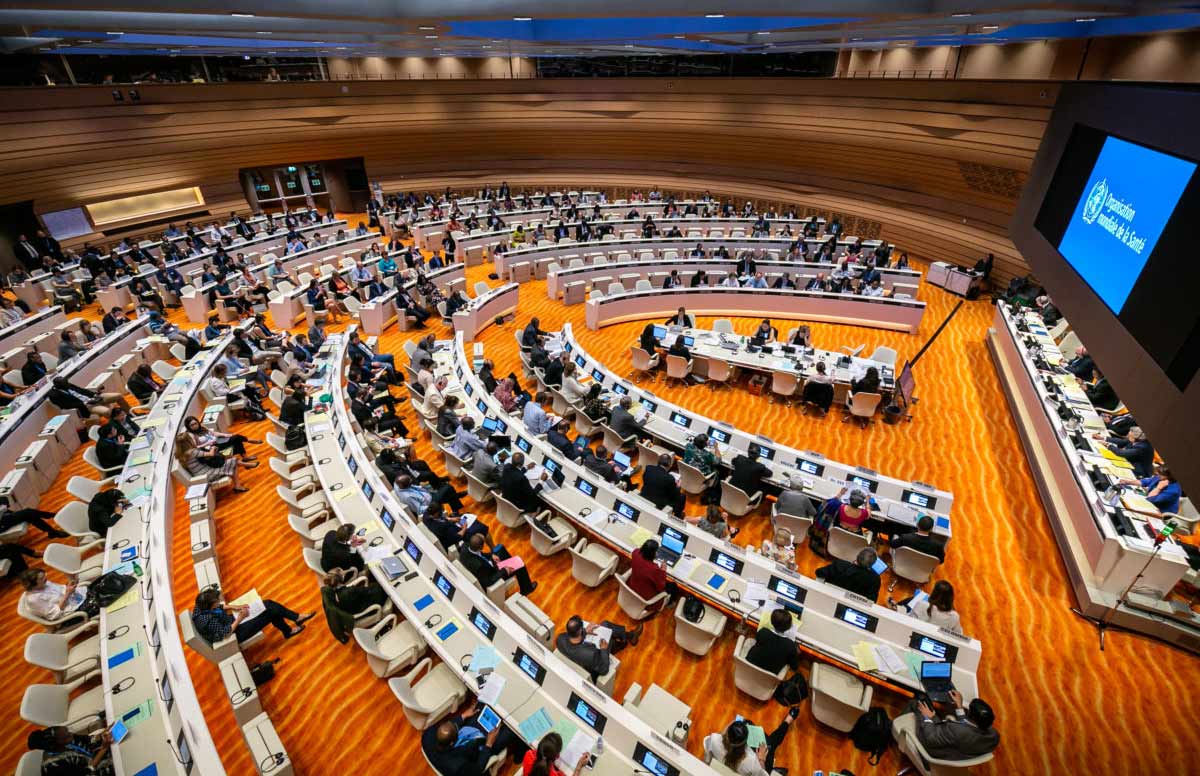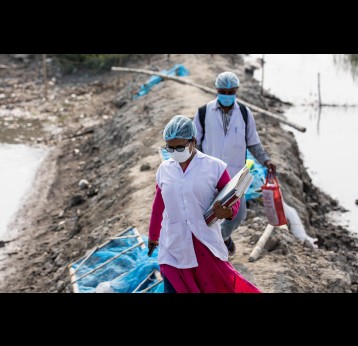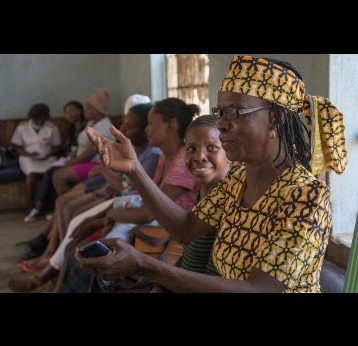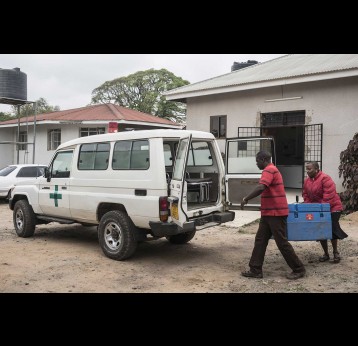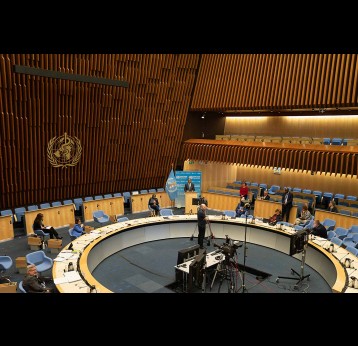Geneva, 20 May 2019 - The 72nd World Health Assembly (WHA) convenes in Geneva this week bringing together governments, health workers, civil society, private sector, academia and other stakeholders. More than 100 meetings and events will take place at the United Nations ‘Palais’, WHO headquarters and nearby locations, including the Global Health Campus.
As the decision-making body of the World Health Organization (WHO), the WHA is attended by delegations from all WHO Member States and focuses on a specific health agenda prepared by the Executive Board. The main functions of the WHA are to determine the policies of the WHO, appoint the Director-General, supervise financial policies, and review and approve the proposed programme budget.
How to participate
The full meeting programme is available on the WHO website. You can also follow WHA sessions virtually, with official meetings watchable via a webcast link here.
Putting immunisation on the agenda
The WHA is also a key opportunity to put immunisation at the forefront of the international agenda, with priority issues this year including:
Universal Health Coverage (UHC)
Sustainable UHC can be achieved by prioritising universal primary health care and by expanding the reach of proven public health interventions, such as immunisation, first to those left furthest behind. This approach reflects the philosophy and ambition of the SDGs.
Read Gavi’s full statement on Universal Health Coverage here.
Polio
Collaboration and strong country ownership are required to strengthen and sustain effective and resilient routine immunisation programmes, and to achieve and maintain a world free of polio.
Read Gavi’s full statement on polio here.
Public health emergencies: preparedness and response
The investigational Ebola vaccine, made available through Gavi’s Advanced Purchase Commitment, has played a major role in saving lives in the ongoing Ebola outbreak in the Democratic Republic of the Congo. However, we are concerned at the increasing risk of geographical spread of the outbreak and the risks to health workers in service delivery.
Read Gavi’s full statement on public health emergencies here.
Antimicrobial resistance
Universal coverage of vaccines will help significantly reduce the use and misuse of antibiotics, preventing the emergence and spread of antimicrobial resistance.
2030 Agenda for Sustainable Development
Immunisation is one of the best buys in global health and its broader benefits are key to the achievement of the Sustainable Development Goals.
Read Gavi’s full statement on the 2030 Agenda for Sustainable Development here.
Gavi-hosted side events
Immunisation as a platform for UHC
Date: Tuesday 21 May 2019
This Gavi-hosted event will focus on achievements, challenges and lessons learned from our 2016-2020 strategic period, followed by a discussion of what our next strategic period may look like. In addition to presentations, the programme will include a high-level panel with Ministers of Health from Gavi-supported countries.
Progress and challenges to end cholera
Date: Wednesday 22 May 2019
The 71st WHA adopted a resolution on cholera prevention and control that urged countries to implement the previously launched global roadmap to end cholera by 2030. As part of this year's WHA, the Global Task Force on Cholera Control (GTFCC) is hosting a side event at Gavi to provide leadership and oversight updates for cholera, and review progress and challenges for the implementation of national cholera control plans in support of the roadmap.
Other Noteworthy Events
- Promoting Vaccine Confidence: Enhancing Global Immunisation Efforts to Protect the Health of All Generations
When: Tuesday 21 May 2019, 12.30-14:00
During this side event co-organised by the US, EU, Romania, Canada, Ukraine and Brazil, expert panelists will discuss the role of misinformation in the resurgence of vaccine-preventable diseases (VPDs), past and current efforts to promote vaccine confidence, and to highlight best practices and strategic approaches to communications going forward.
- WHO Technical Briefing: Global Action Plan for Healthy Lives and Well-being for All: a commitment to accelerating together
When: Monday 20 May 2019, 12:30-14:00
Notes to editors
About Gavi, the Vaccine Alliance
Gavi, the Vaccine Alliance is a public-private partnership that helps vaccinate half the world’s children against some of the world’s deadliest diseases. Since its inception in 2000, Gavi has helped to immunise a whole generation – over 760 million children – and prevented more than 13 million deaths, helping to halve child mortality in 73 developing countries. Gavi also plays a key role in improving global health security by supporting health systems as well as funding global stockpiles for Ebola, cholera, meningitis and yellow fever vaccines. After two decades of progress, Gavi is now focused on protecting the next generation and reaching the unvaccinated children still being left behind, employing innovative finance and the latest technology – from drones to biometrics – to save millions more lives, prevent outbreaks before they can spread and help countries on the road to self-sufficiency. Learn more at www.gavi.org and connect with us on Facebook and Twitter.
The Vaccine Alliance brings together developing country and donor governments, the World Health Organization, UNICEF, the World Bank, the vaccine industry, technical agencies, civil society, the Bill & Melinda Gates Foundation and other private sector partners. View the full list of donor governments and other leading organizations that fund Gavi’s work here.

